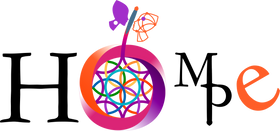Health Optimization and AI in Medical Practices: What's Next in 2025
In this episode of the Smarter Not Harder Podcast, we discuss the evolving landscape of Health Optimization Medicine and Practice (HOMeHOPe), including new modules on epigenetics, expanded research on exposomics, and advancements in AI technology. We delve into the rise of longevity clinics, the sober curious movement, and the growing use of AI in medical practices. Key highlights feature discussions on personalized medicine, the integration of AI for scalable practices, and the future of health and wellness trends in 2025.








